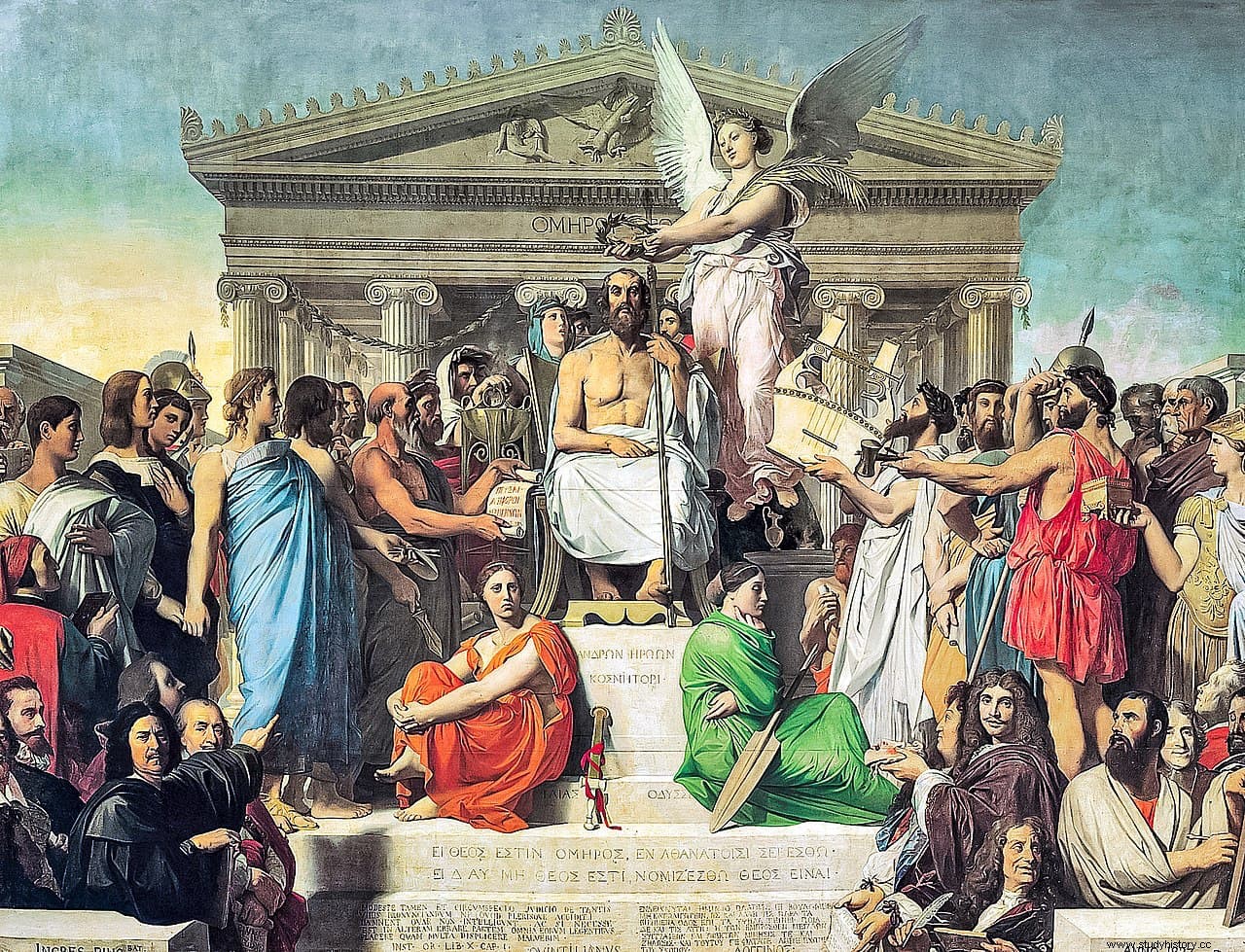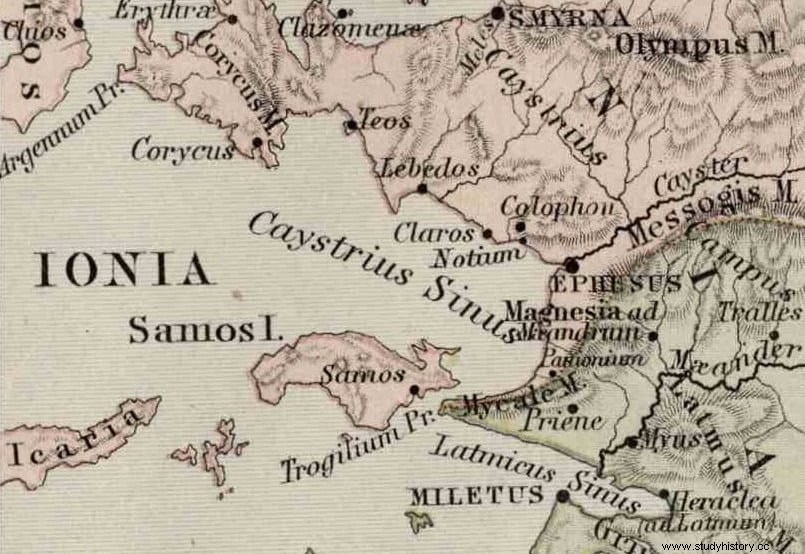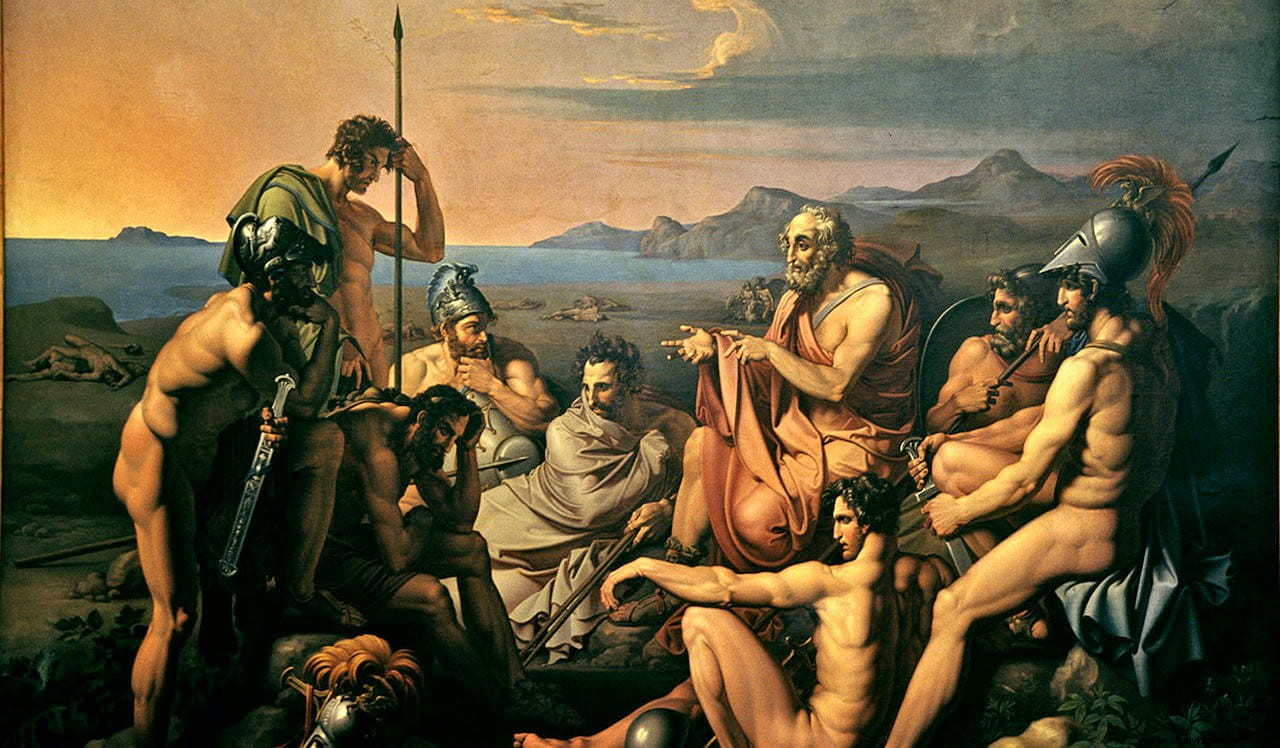In ancient times, both the Iliad like the Odyssey they were considered historical accounts that had really happened, as they had been transmitted, first orally and then in writing. Its author was Homer, a bard whose existence was also not questioned, despite the fact that it was hardly known that he was born in Chios, Smyrna or Colophon, and that he was blind. Everything about him is shrouded in mystery and legend.
That is why it is not surprising that, in addition to the Iliad and the Odyssey Works such as the other six poems that together with these make up the complete Epic Cycle will be attributed to him.
But also, surprisingly, comic epic poems like the Batrachomyomachy (which narrates the war between the frogs and the mice) or the Margites , of which only a few lines have survived to this day.

Precisely the Margites (in Greek Μαργίτης) must have been a very popular and successful work at the time, given that even Plato and Aristotle have left us references to it. Precisely the latter is attributed to Homer in his Poetics , implying its great value:
From the little that has survived we know that it was a comic play in which its protagonist was a man from the city of Colophon (one of those that claimed to be the birthplace of Homer) extremely stupid, so much so that he did not know if he had hit him. to give birth to his mother or his father. In addition, it was written mixing hexameters with iambic trimeters, a rarity in the literature of the time.

Among the few lines of the poem that we know of are:
It is not uncommon for the Greeks to use the word margites to describe someone foolish or useless. It was what the Athenian politician and orator Demosthenes called Alexander the Great to insult him, according to his enemy and rival Aeschines.
It is possible that the character of Margites was a caricature of Achilles, which is why Demosthenes said that Alexander, in his aspiration to become a second Achilles, would never be more than a caricature of him . It is unknown when, where and by whom the poem was written. The 6th and 7th centuries BC have been proposed as possible, a time when epic poetry was still booming.

The great Byzantine medieval encyclopedia, the Suda, no longer attributes the Margites to her. to Homer but to Pigres, a poet from Halicarnassus who was also the brother (others say son) of Queen Artemisia, the one who commanded her ships within the Persian fleet at the battle of Salamis in 480 BC
Some scholars think that what Pigres did was to modify the Margites inserting iambic verses between the hexameters, just as he had previously modified the Iliad inserting a pentameter verse after each hexameter. He would thus have been the first author to use the iambic trimeter.
